115M+
ethically-sourced IPs
#1
response time
99.86%
success rate
99.99%
uptime
<0.6s
response time
What is XLogin?
XLogin is an anti-detect browser packed with multiple fingerprinting, task automation with Selenium web driver, and a separate browser environment for each virtual session. With XLogin, users can manage multiple accounts without facing CAPTCHAs or IP bans.

Why residential proxies?
The dynamic duo – Decodo's residential proxies with an extensive 115M+ IPs across 195+ locations around the world, paired with the XLogin anti-detect browser, is a match made in heaven. Whether juggling multiple accounts, gathering public web data, accessing region-specific content, or keeping tabs open on retail price fluctuations, this combo has got you covered.
As residential IPs originate from household devices connected to the local network, websites treat these proxies as authentic internet users, providing a seamless connection, minus the CAPTCHAs and bans.
Set up Decodo’s proxies with XLogin
Get started by downloading the anti-detect browser from the XLogin website. Currently, this anti-detect browser is only available for Windows. After setup, create an account and choose a plan. XLogin offers a free 3-day trial with access to all the features. When the account is up and running, you need to pair your residential proxies with the browser.
Integration with residential proxies
The integration process is simple. First, log in to your Decodo dashboard and follow these steps:
- Open the proxy setup tab.
- Navigate to the Endpoint generator.
- Configure the parameters. Set your authentication method, location, and session type.
- Select the number of proxy endpoints you want to generate (default – 10).
- Copy the endpoints.
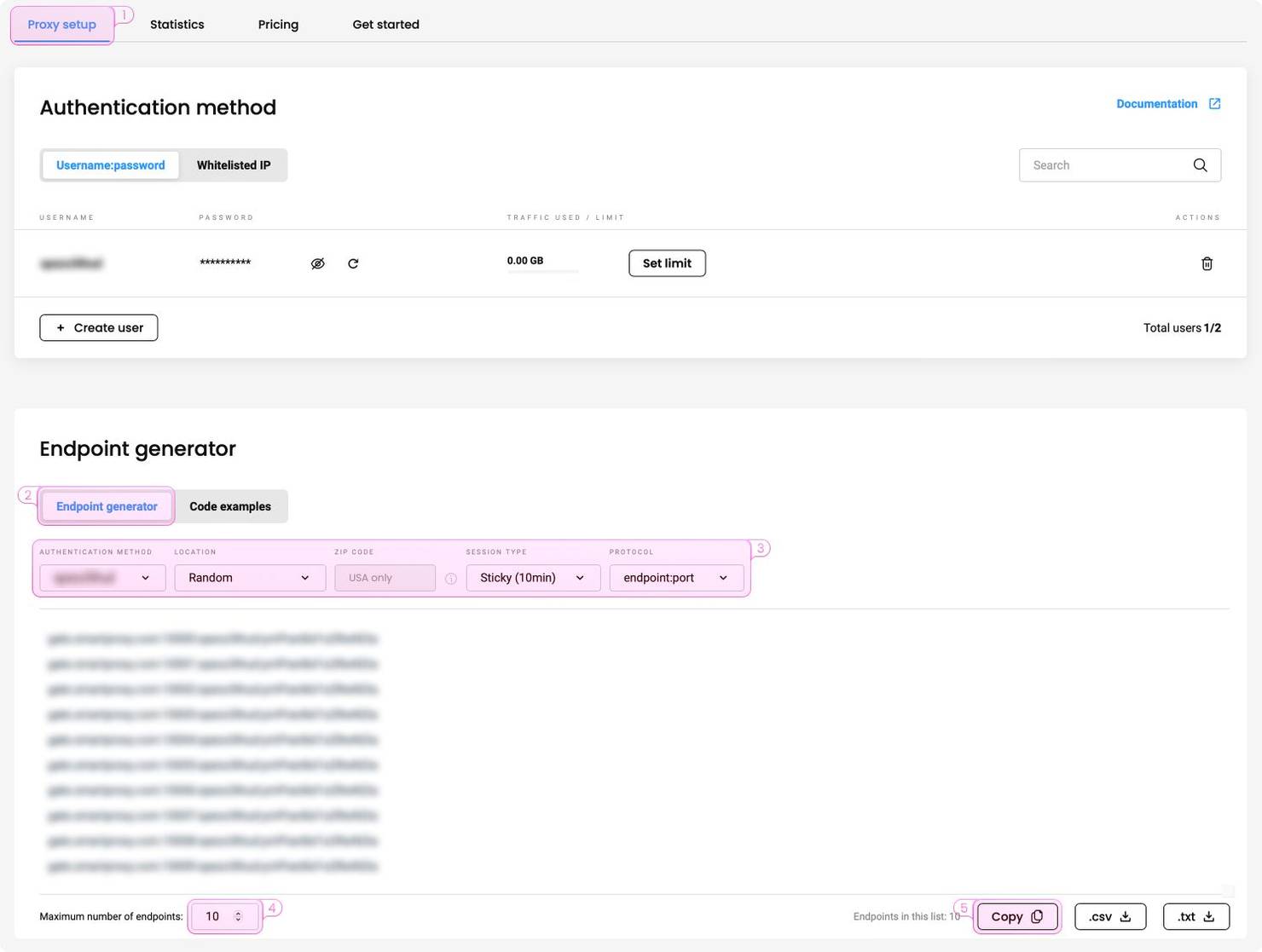
Integration with datacenter proxies
To integrate XLogin with Decodo datacenter proxies, in the dashboard:
- Open the proxy setup tab.
- Navigate to the Endpoint generator.
- Configure the parameters according to your needs. Enter your credentials for the authentication method, and set a location and session type.
- Select the number of proxy endpoints you want to generate (default – 10).
- Copy the endpoints.
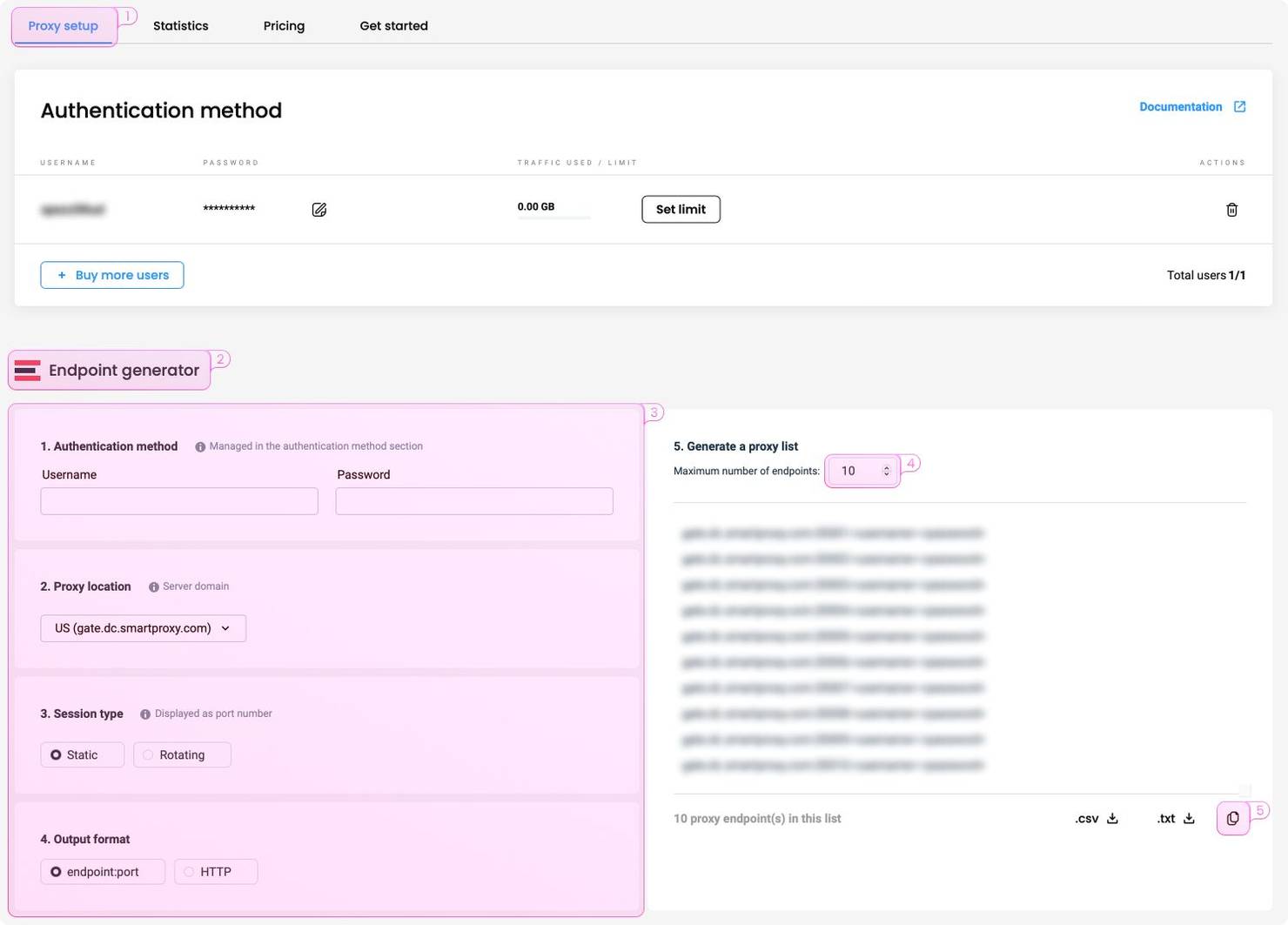
Setting up proxies with XLogin anti-detect browser
Once you’ve got your endpoints, it’s time to pair proxies with an anti-detect browser. In the main XLogin window, click New browser profile, then:
1. Enter the basic setup information – choose the profile name and OS.
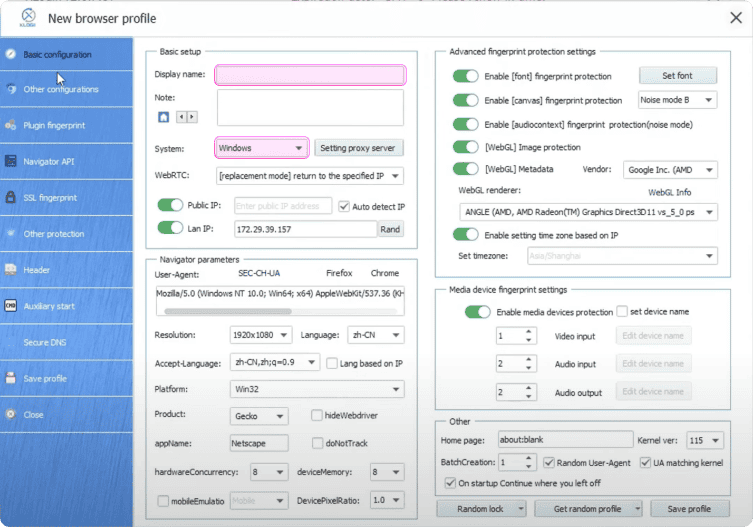
2. Click Setting proxy server.
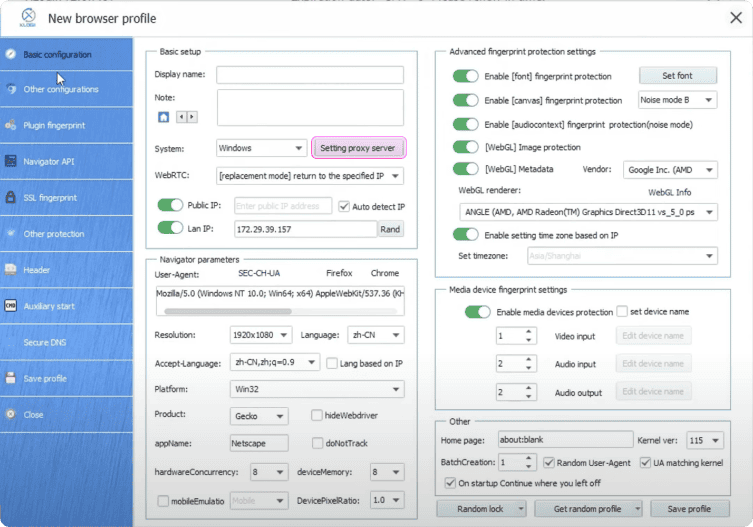
3. Turn on the toggle Enable proxy server, select proxy type, enter an IP address, port, username, and password.
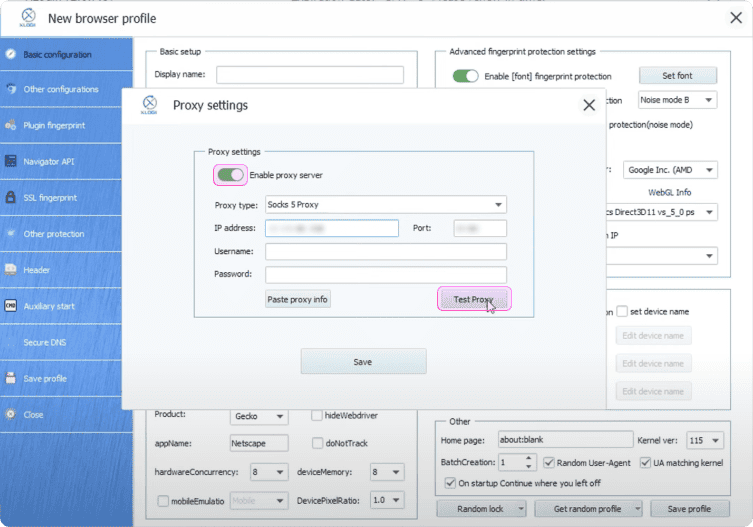
4. After entering the proxy information, click Test proxy. If the browser returns you with a success window, press Confirm and then Save.
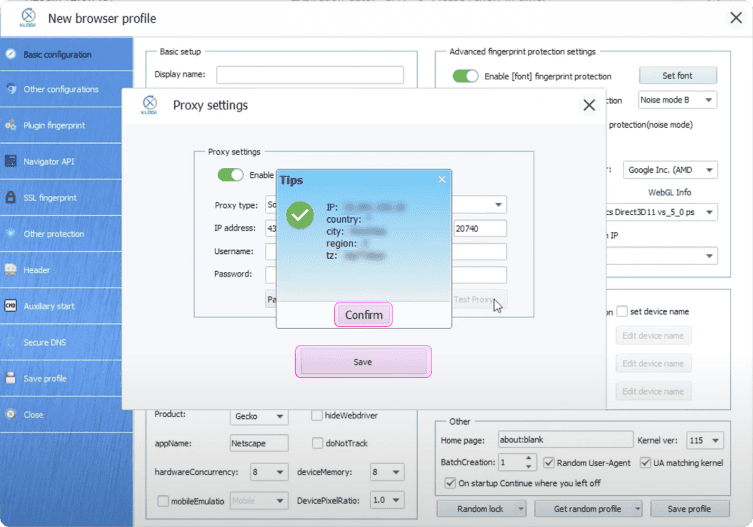
Fastest residential proxies
Pick a plan that suits you. Get ahead with unblockable and stable proxies.
100 GB
$1.5
/GB
Total:$450$148.5+ VAT billed monthly
Use discount code - NOIDEA67
With each residential proxy plan, you access:
115M+ ethically-sourced IPs in 195+ locations
HTTP(S) & SOCKS5 support
Continent, country, state, city, ZIP code, and ASN-level targeting
Rotating and sticky session options
<0.6s avg. response time
99.86% success rate
99.99% uptime
Seamless integration with scraping tools and bots
24/7 tech support
14-day money-back
SSL Secure Payment
Your information is protected by 256-bit SSL
What people are saying about us
We're thrilled to have the support of our 130K+ clients and the industry's best.
Attentive service
The professional expertise of the Decodo solution has significantly boosted our business growth while enhancing overall efficiency and effectiveness.
N
Novabeyond
Easy to get things done
Decodo provides great service with a simple setup and friendly support team.
R
RoiDynamic
A key to our work
Decodo enables us to develop and test applications in varied environments while supporting precise data collection for research and audience profiling.
C
Cybereg
Featured in:
Frequently asked questions
What is XLogin?
XLogin is an anti-detect browser that allows users to manage multiple browser profiles with a separate virtual browsing environment, including cookies, local storage, and cache files.
What is XLogin used for?
Anti-detect browser assists users in managing eCommerce accounts, affiliate marketing, SEO, brand protection, and ad verification.
Be aware that any tools mentioned in this article belong to a third party, not Decodo. Therefore, Decodo will not be responsible for any of the services offered by the third party. Make sure to thoroughly review the third-party’s policies and practices, or do your due diligence, before using or accessing any of their services.
